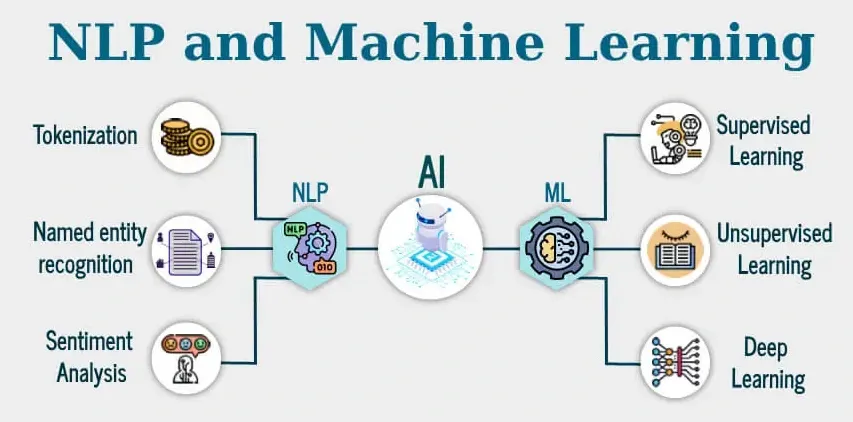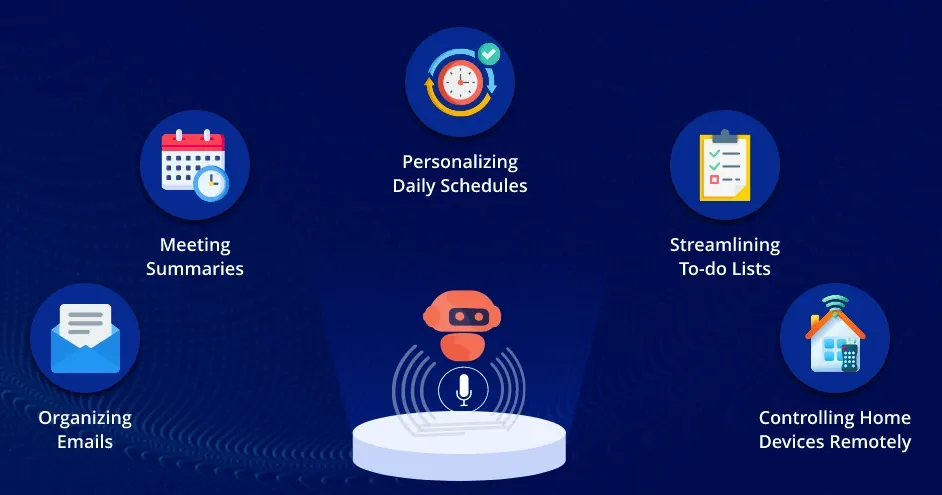What Is an AI Assistant?
You don't need to be an expert to understand complex concepts. In fact, most people spend over 90,000 hours in their lifetime working—yet only a fraction of that time is spent learning effectively (Harvard Business Review, 2020). The problem isn’t a lack of information; it’s a lack of clarity.
With the rise of information overload, it’s easy to feel overwhelmed. Every day, 2.5 quintillion bytes of data are created, most of which is irrelevant or outdated (IBM, 2020). Sorting through all this noise isn’t just time-consuming—it’s counterproductive.
That’s where your AI assistant comes in. Designed to help you access the right knowledge, it cuts through the clutter, delivering clear, concise, and actionable information when you need it most. Whether you’re tackling a new subject, solving a problem, or simply curious about something, this tool ensures you get the answers you want—without the hassle.
In a world where time is precious, your AI assistant is the shortcut you’ve been waiting for. Get smarter, faster.
How AI Assistant Works?
An AI assistant is a software program that helps with tasks using artificial intelligence. It can understand and process your speech or text, perform tasks like setting reminders, answering questions, or controlling smart devices.
AI assistants improve over time by learning from interactions, becoming more personalized. Examples include Siri, Google Assistant, and Alexa. They use natural language processing (NLP) to understand commands and provide helpful responses, making everyday tasks easier and more efficient.

How Do AI Assistants Work?
Voice assistants might seem magical, but there’s real technology behind them. They work using machine learning and natural language processing (NLP), which helps them understand what we say and respond in a useful way.
For example, OpenAI's Assistant uses NLP to process your questions and generate answers that sound natural. Over time, it gets better by learning from past conversations. The more you use it, the smarter it becomes. According to Gartner, 75% of customer service interactions will be powered by these systems by 2025—showing how fast this technology is growing.
JetBrains Assistant helps developers write and debug code faster. It analyzes their work and suggests improvements, saving both time and effort. The more it works with you, the better it understands your style and needs.
At its core, these assistants learn from data to improve their responses, making each interaction a little smarter than the last.
Where Do We Use AI Assistants?
These tools are everywhere now—at home, at work, and even in customer service. Let’s break down how they’re being used:
- At Home:
If you use Siri, Google Assistant, or Alexa, you’ve probably noticed how they help with everyday tasks. They can:- Set alarms or reminders
- Play music or podcasts
- Control smart home devices like lights or thermostats
- Tell you the weather or traffic
By 2023, more than 3.25 billion voice assistants are in use globally (Source: Statista), and that number keeps rising.
- At Work:
In the workplace, these assistants handle repetitive tasks, allowing employees to focus on more important work. They can:- Schedule meetings and manage calendars
- Sort through emails
- Answer customer inquiries
For example, JetBrains Assistant helps developers by analyzing their code and suggesting improvements. This makes the development process faster and more efficient. In fact, businesses using this technology for customer service are saving up to $11 billion annually (Source: Juniper Research).
- In Customer Service:
Many companies now use chatbots for customer support. These tools can:- Answer common questions
- Help with order tracking
- Offer 24/7 support
Salesforce reports that 80% of businesses have adopted automated systems to improve customer interactions.
- In Healthcare:
Healthcare is another area where these assistants are making a difference. They help:- Schedule appointments
- Send medication reminders
- Provide general health tips
By automating routine tasks, these systems help reduce workloads on healthcare workers, making services more accessible and efficient. According to McKinsey, the healthcare sector could save up to $150 billion annually by 2026 by using automation in this way.
The Benefits of Assistants
So, why are these assistants so popular? Here are some of the main advantages:

Boosting Productivity
By automating time-consuming tasks, these tools let you focus on what matters most. Developers using JetBrains Assistant, for example, can write code more quickly. According to PwC, automation can increase productivity by up to 40% in some industries.
Always Available
Unlike humans, these assistants are available 24/7. Whether it's in the middle of the night or on the weekend, they’re always ready to help. This is especially useful for businesses with international customers across different time zones.
Accuracy
These tools can handle repetitive tasks with high precision. Whether it's sorting emails or scheduling meetings, they help businesses stay organized and consistent.
Cost Savings
By taking over tasks that usually require human workers, businesses can cut down on labor costs. McKinsey estimates that automation can reduce operational expenses by up to 40%.
Personalized Help
The more you use them, the more these assistants learn about your habits and preferences. They adapt to your needs, offering helpful suggestions or reminders based on your daily routine.
Challenges with Assistants
While these tools offer a lot of advantages, there are also some challenges to consider:
Understanding Context
These systems still struggle with complex or unclear instructions. They’re good at following direct commands, but they can misinterpret nuanced or vague questions, making conversations feel a little stiff at times.
Privacy Concerns
Because these tools collect and process data, there are concerns about privacy. A survey by Consumer Reports found that 39% of Americans worry about their voice assistants listening in on private conversations. Privacy protection will need to improve as the technology becomes more widespread.
Limited Capabilities
While they handle simple tasks well, these assistants still can’t tackle more complicated or specialized work that requires human expertise. For example, they can schedule meetings but can’t provide professional financial advice.
Dependence on the Internet
These assistants rely heavily on the internet to function. Without a stable connection, they can’t process data or perform tasks as effectively. In areas with poor internet access, this can be a major limitation.
The Future of Assistants
Looking ahead, the future of these tools is bright. As technology advances, they’ll continue to improve.
Better Language Understanding
In the future, these systems will get better at understanding complex language. They’ll be able to detect tone, sarcasm, and context, making interactions feel more natural. The NLP market is expected to grow by 22.5% annually through 2027 (Source: Grand View Research), meaning we’ll see smarter, more intuitive systems.
Deeper Integration
These tools will become more integrated into our daily lives. Imagine one assistant that not only manages your calendar but also controls your home security, handles your work tasks, and even shops for you.
Personalization
The more these systems interact with you, the more they will anticipate your needs. They’ll offer more personalized suggestions and reminders, making them feel like a true personal assistant.
Expanding Roles
These tools will continue to expand into new areas. They could assist in healthcare with virtual consultations, provide legal research, or help with education. As they get better at specialized tasks, they’ll become an even more integral part of various industries.
Conclusion: Why Assistants Are Here to Stay
These assistants are quickly becoming a permanent part of our daily lives. Whether we’re using them at home, work, or to manage customer service, they’re making things easier and more efficient. As the technology continues to evolve, we’ll see even smarter, more capable systems that integrate seamlessly into our routines.
The future is bright for voice assistants, and they’re not going anywhere anytime soon. They’re here to help, and their role in our lives will only keep growing.
Frequently Asked Questions (FAQs)
How does integrating an AI assistant improve business operations?
Integrating an AI assistant into business workflows automates routine tasks, reducing human error and allowing teams to focus on more strategic initiatives.
The assistant can scale operations and improve efficiency.
What industries benefit the most from AI assistant technology?
AI assistants are making an impact across various industries such as finance, healthcare, and retail.
They enhance customer service, streamline operations, and assist with data analysis, making these industries more efficient.
How does an AI assistant adapt to evolving user needs over time?
AI assistants use machine learning to analyze user interactions, gradually improving their responses.
This adaptability ensures that as your preferences and needs change, the assistant can continue to provide more relevant and personalized support.
What challenges should businesses consider before adopting AI assistant technology?
Before implementing an AI assistant, businesses must assess potential challenges, such as integration complexity, data privacy concerns, and the need for ongoing training.
Clear goals and expectations will ensure the integration is seamless.
Are AI assistants effective in managing complex customer inquiries?
AI assistants can efficiently handle basic inquiries but may struggle with more complex or nuanced issues.
For businesses, combining AI with human oversight creates a hybrid solution that addresses both routine and intricate customer queries
